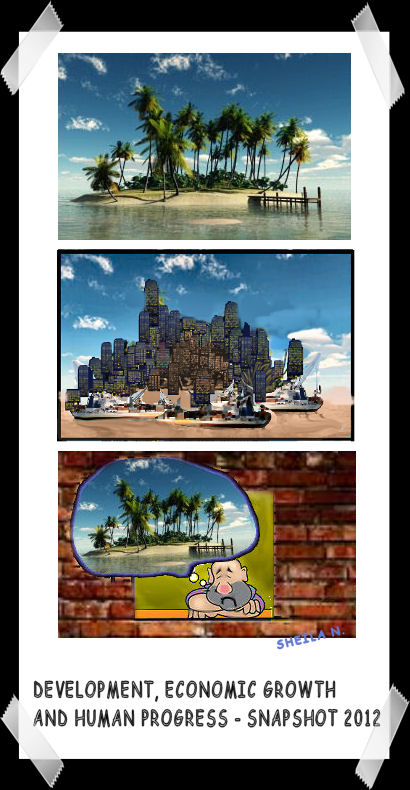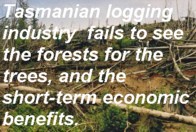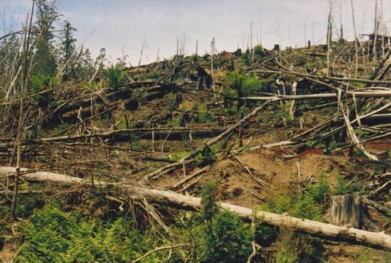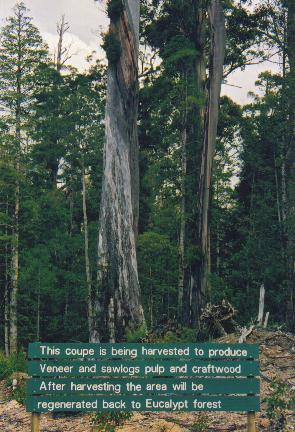jobs
Progress in international development aid
 Are you a young engineer or a self-driven real-estate student? Do you want a job in international development aid? Would you know how to promote modern land-titles to aborigines in central Australia and to peasants in Bangladesh? Would you be interested in bringing modern jobs to self-sufficient villagers in Africa? Could you help plan how to modernise New Guinea village systems and promote land-sales among islanders with thousands of years old village systems? Do you want to be an international expert bringing progress and economic growth to underdeveloped places? Check these pages to see where your ambition, drive and knowledge may lead and what good you may bring to the world!
Are you a young engineer or a self-driven real-estate student? Do you want a job in international development aid? Would you know how to promote modern land-titles to aborigines in central Australia and to peasants in Bangladesh? Would you be interested in bringing modern jobs to self-sufficient villagers in Africa? Could you help plan how to modernise New Guinea village systems and promote land-sales among islanders with thousands of years old village systems? Do you want to be an international expert bringing progress and economic growth to underdeveloped places? Check these pages to see where your ambition, drive and knowledge may lead and what good you may bring to the world!
Scroll down to see the effect of modern development

Prioritise Australia's unemployed ahead of immigrants for unskilled jobs
Why is it that Australia's unemployed in March 2010 just gone number 611,000, while thousands of unskilled jobs are being filled by new immigrants?
Walk around the centres of Brisbane, Melbourne and Sydney and get into a taxi and find invariably a new migrant at the wheel, born overseas, whose first language is not English, who has had to learn the city streets after driving the taxi. Meanwhile how many of our unemployed, Australian born living in cities, who grew up in the city and could drive a taxi if the opportrunity presented? Why does not Centrelink link up with the taxi industry and put priority on Australia's unemployed, before the jobs go to foreigners? When tourist want to get directions from a taxi driver in a city, someone who is born in the city will have more local knowledge than someone who has not.
Same goes for unskilled and semi-skilled government workers such as those employed by the railways, selling tickets, directing passengers, as guards, as linesmen. Why are these jobs dominated 100% by new migrants?
Is it because Federal and State governments in Australia have prejudiced rules to employ migrants first, because if they don't, they can be branded as discrminatory. That Australian-borns and Indigenous Australians are poorly represented in government unskilled and semi-skilled jobs is REVERSE DISCRIMINATION.
In NSW, government policy requires people who work for the NSW Government need to adhere to its principle of
Cultural Diversity, celebrating not Australian values, but different linguistic, religious, racial and ethnic backgrounds under the Principles of Multiculturalism Act 2000. Such diversity recognises linguistic and cultural assets as a 'valuable resource'.
English language, assimilation and cultural fit is out the door.
Employmers, vocational training institutions like TAFE and Centrelink seem to be poles apart not talking to each other. Australians can't find work, yet employers can't find workers. Liberal and Labor simpletons just take the easy quick fix solution - more migrants!.
Tony Abbott's kneejerk solution
Catholic Liberal Opposition Leader Tony Abbott's latest kneejerk solution is to ban Australia's unemployed under the age of 30 access to welfare. Abbots wants under-30s to leave the community they grew up in and relocate to areas where employers need unskilled labour. Forget that the migrants have taken the local unskilled jobs.
Tony Abbott calls for debate on banning dole for under-30s
Abbott other kneejerk solution is to send Australia's youth to West Australian and Queensland mining and resources sector. This is the same industry sector that failed to train its workforce before the last resources boom and so had to go offshore for more migrants. Then when the boom ended, corporations like BHP Billiton sacked thousands and abandonned local communities dependent on it.
Remember the 6000 sacked by BHP Billiton a year ago at Ravesthorpe!
Criticism over Abbott's kneejerk solution by Australian Workers Union national secretary Paul Howes, is justified. “If (Abbott) genuinely thinks you are going to solve an economically crippling skills shortage by taking punitive measures against welfare recipients, he has clearly never lived in the real world,” Mr Howes said. “You can't just get any old Joe off the street and plonk them into a mine, and think that's going to mean they can work.”
The skills shortage in WA's resources sector is a direct result of short term profit taking by the mining companies failing to re-invest in skilling. It is a failure by both the companies and the WA and Queensland governments to adequately skills train between the resources booms.
Migration needs to be tied to Australia's carrying capacity. Part of that capacity is utilising our home grown unemployed first. I wager that of our current 611,000 unemployed, 300,000 could take on unskilled jobs while they seek the sought of work they want. That would be 300,000 less people on welfare, 300,000 less migrants, 300,000 more Australian happily contributing to the economy and to Australian society and 300,000 families of one sort or another not under stress. Consequential Australian social problems of homelessness, family breakdown, decline in physical and mental health, substance abuse, etc. would be in part addressed.
Migrants coming to Australia taking Australian jobs are at the same time abandoning their countries of origin and depriving their home countries of a workforce.
Governments fail to see the value of old growth forests other than for "management"

Tasmania's forest industry has rejected a Greens plan to ban logging in high conservation value forests. The Greens says 300 jobs would be lost but more than 700 created through the strategy. Even job creation is not enough to move the die-hard destructive mentality. Both Labor and Liberals support Gunns pulp mill and neither is proposing any new forest reserves.
Trees up to hundreds of years old cannot be replaced overnight, despite how "sustainable" the logging is supposed to be!
Governments fail to see the value of forests when they can't see the trees as anything but resources to plunder, or "manage", for economic benefits and jobs.
Tasmania's forest industry has rejected a Greens plan to ban logging in high conservation value forests. The Greens says 300 jobs would be lost but more than 700 created through the strategy. Even job creation is not enough to move the die-hard destructive mentality. Both Labor and Liberals support Gunns pulp mill and neither is proposing any new forest reserves.
Mr Bartlett signalled that on the hot topic of forestry, Labor wanted to ensure the logging of old-growth forests would continue in the long-term. I believe old-growth will always be part of Tasmania's (forestry) mix.
The manufacture and sale of high value products from special timbers provides employment for more than 2,000 Tasmanians and generates about $70 million for the state each year. The vast majority of wood from these forests (approximately 80%) goes into short lived products such as paper and cardboard which decompose and release carbon very quickly. So, carbon storage in wood products can never make up for the loss of carbon storage in old growth forests.
An alliance of forestry companies in Tasmania has launched an advertising campaign warning of the risks to the economy if all old growth logging is stopped. Forests remain silent inside the consciousness of people who are environmentally illiterate!
Governments fail to see the value of forests when they can't see the trees as anything but resources to plunder, or "manage", for economic benefits and jobs.
Who will publicise the risks to our heritage, our air, water, homeless native wildlife, and additional greenhouse gas emissions when old-growth forests are destroyed? By their very nature, these trees take hundreds of years to replace themselves, yet we, the public, are supposed to be so myopic that the ephemeral financial returns from logging old growth forests should over-ride the value of these ancient sentinels, guarding the wealth of natural ecosystems?
It may appear as if nothing is changing in forests, but countless natural cycles are silently at work every day and night. Old growth forests have a high level of biodiversity, and logging causes disturbances and destruction.
Conserving the nation's forests and woodlands is one the easiest, cheapest and fastest ways that we can start to reduce greenhouse gas emissions and improve carbon storage.
Many of the RFA old growth forests protected in Tasmania consist of trees of little use to the timber industry. Despite repeated requests for solid evidence supporting such ‘statistics’ as “90% of the Upper Florentine Valley is reserved from logging,” data and maps supporting such claims have failed to materialise. We do know, however, that most of the ‘protected’ country in the Upper Florentine consists of buttongrass, scrub and high-altitude moorlands, with very few tall-eucalypt forests reserved. Only 22% of Tasmania’s original tall-eucalypt forests have been reserved.
Tasmania is the largest exporter of woodchips in Australia, exporting more than all the other states combined.
This year, ironically, is the UN Year of Biodiversity, and next year is the Year of Forests.
As our population swells, more natural resources such as forests will be considered as assets to plunder for economic benefits! Our natural heritage, and ecosystems, are continually under threat from industry and developments.
We are already world-leaders in wildlife extermination, and Tasmania is famous for the genocide of its indigenous people, destroying Lake Pedder, exterminating the Tasmanian Tiger and for the current threats to the Tasmanian Devil. Logging native forests destroys homes, creates stress and robs wildlife of habitat. We humans are not part of their ecosystems, and removing trees increases fire risks.
Unless we declare all our old-growth forests and remaining native vegetation as part of our national park system, the logging mafia will continue to threaten, bully and dominate our State governments.

(Photo: devastation at the Styx old growth forests - Wikipedia commons)
A recent poll shows the Labor government of Premier David Bartlett is in trouble, with the Greens polling well. Unless there is a late surge in support for David Bartlett's Labor or Will Hodgman's Liberals, one or other of them will be governing in minority after March 20, ending 12 years of ALP majority rule.
People can relocate, retrain and be resourced in other industries. Trees up to hundreds of years old cannot be replaced overnight, despite how "sustainable" the logging is supposed to be!

(photo: Styx logging sign)
Our old-growth forests do not owe us, non-indigenous people of Australia, a livelihood. We owe it to next generations a nation with its natural wealth intact and viable through preservation, and honouring our heritage and non-human species.
Lindsay Tanner's Climate change balancing act
Apologist for growthism and global capitalism
Linsay Tanner has long been an apologist for growthism and nothing has changed recently. "We have always taken the position that whatever is required to sustain jobs, to sustain economic growth, will be done." (Source:Mark Metherell, "Budget deficit could reach $100b: Tanner," April 6, 2009)
He is an advocate for globalised capitalism. “Lindsay Tanner has chosen instead to be an advocate for globalised capitalism, to persuade us that There Is No Alternative, and that what is good for business is good for government, good for unions and good for everyone.” (Source)
In Lindsay Tanner, "Climate change balancing act", The (Business) Age, 2 September 2009, he writes that
“to […]challege that the Government's in the pocket of big polluters is just juvenile name-calling. It's an easy sledge from someone who doesn't have to get legislation through the Senate, manage the impact on the economy, and ensure community opinion remains onside.”
He therefore seems to admit that the government is in the pocket of big polluters, but rejects criticism about this as juvenile. He then rolls on to justify being in the pockets of big business with:
“Big polluters employ hundreds of thousands of Australians. Their activities are woven throughout our entire economic framework.”
Top down government keeps us on the treadmill
I wouldn't agree with the remark about 'ensuring community opinion remains onside', because how would the government or the community know what its opinion was? It doesn't get any chance to voice it. All we hear is the corporate media's opinion of what community opinion is, and it never asks us either.
The fact is that the government is so dependent on taxes from wage-earners that it cannot allow those wage-earners any freedom to reduce carbon emissions by, for instance, supplementing their incomes through relocalised production of essentials (home gardens) and to reduce of their own volition working hours and consumption in favour of a more sociable lifestyles (local democracy and production minimises travel and fuel consumption). If people simply slowed down production, this would take away from the government’s income and power as well as that of big business. (Slowing down production slows down carbon emissions and gives us more time with less emissions.) And the government’s overspending to continuously pump up economic growth relies on the constant import of more and more paying immigrants, in order to add to the numbers of tax-payers.
Rome did the same thing to avoid its own fall. Eventually it was selling citizenship and land just like Australia in order to get more tax-payers. This did not stop it from falling apart though.
The government’s policies are driving all costs up, along with the price of land, water and electricity, and its own debt.
Lindsay accuses the other side of ‘cheap rhetorical flourish’ about big polluters, but then he subjects us to his own cheap rhetoric about how “in the difficult real world of politics you don't always get everything you want.”
Well, in Australia, it seems like big business does.
ACF and Climate Institute government friendly
Tanner follows up with,
“Key sections of the environment movement, such as the Australian Conservation Foundation and the Climate Institute, have accepted that the Government's proposals are reasonable.”
Well, thank you for fingering the culprits, Lindsay. In fact most of us in the Environment ‘movement’ gave up on the Australian Conservation Foundation years ago, and came to terms with the fact that it takes peoples’ money and represents the government position, forming a kind of road-block to any true engagement between the government and the environmentally concerned and informed public. As for the Climate Institute, so far, it just sounds like some kind of advertisement for itself. It’s not too obvious what it does besides issue press releases and solicit funds.
Greens make Lindsay and his mates uncomfortable
Towards his conclusion, Lindsay knocks the Greens for disagreeing with Labor and failing to “build coalitions with others who have different views”. Lindsay says this helps prevent any action occurring. But if you know Labor, ‘action’ means more of the same: more population growth, more debt and more deals with the big polluters – property development and infrastructure expansion. Lindsay should know: the ALP owns two big property investment companies of its own – Labor Holdings Propriety Limited and Labor Resources Propriety Limited. Wholly owned by the Queensland Branch of the Australian Labor Party. Both were built up by Kenneth Rudd and Wayne Swann. In fact I can’t really tell the difference between the ALP, ALP governments and commercial property development companies. (Source: Expert discusses 'deliberately confusing' labor donations.)
Lindsay also says he believes that the only reason the Greens join other non-Labor representatives to vote down Labor’s policies on climate change is to take votes from Labor.
Short lesson in power of small parties and independents in parliament
In fact, another reason could just be that the Greens are only doing what they can to stop the ALP from expanding the problem of increasing pollution. Here is a good video about the Greens and the role that small parties play in politics:
http://www.youtube.com/watch?v=EGD0VncZOFI&feature=related

Recent comments